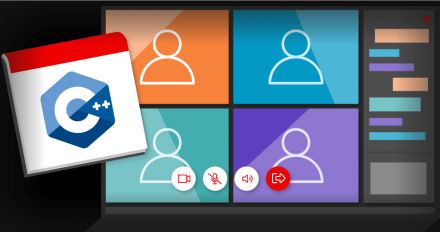Jonathan Wakely
Jonathan Wakely's contributions

Blog
Report from the February 2023 ISO C++ meeting (Library)
Jonathan Wakely
Get the highlights from the February 2023 ISO C++ standards committee meeting

Article
Report from the February 2019 ISO C++ meeting (Library)
Jonathan Wakely
We have a rundown of recent activities in the Library Working Group from the WG21 C++ standards committee meeting.

Article
Red Hat at the ISO C++ Standards Meetings (November 2016, Issaquah, and February 2017, Kona): Library
Jonathan Wakely
I attended the recent Issaquah and Kona ISO C++ standards meetings, representing Red Hat and the GCC project, and helping to complete the C++17 standard. As usual, I spent the majority of my time in the Library Working Group (LWG) sessions, but also took part in a subgroup focusing on the Filesystem library, more on that below. Following the National Body (NB) ballot on the C++17 draft, the LWG had a huge number of comments to process. Some issues were...
 Article
Article
Red Hat at the ISO C++ Standards Meeting (June 2016, Oulu): Library
Jonathan Wakely
The recent WG21 meeting in Oulu, Finland, was an especially busy one for the Library Working Group. Every day was spent working through the list of proposals intended for inclusion in C++17, and we also had three "evening" sessions that ran well past the evening (until nearly midnight, although the sun was still up to trick us into working late). This post describes what I think are the most important library features that were reviewed and approved for inclusion in...
 Article
Article
Red Hat at the ISO C++ Standards Meeting (March 2016): Library
Jonathan Wakely
Earlier this year I attended the WG21 C++ standards committee meeting in Jacksonville, Florida, and as usual I spent most of my time in the Library and Library Evolution Working Groups. You can read about some of the other groups' work in Jason's Core report and Torvald's Parallelism & Concurrency report. As Jason wrote, several of the Technical Specifications published in the last few years were proposed for inclusion into the next revision of the C++ standard (C++17) and most...

Article
Why < cstdlib > is more complicated than you might think
Jonathan Wakely
One of the reasons that C++ has been so successful and become so widely used is that it was (at least initially) compatible with C, which was already very popular. C++ programs were able to make use of lots of pre-existing C code, and in particular to make use of the C Standard Library. Although the C and C++ languages have diverged, the C++ Standard Library incorporates most of the C99 library by reference. This article explains some of the...
 Article
Article
GCC 5 in Fedora
Jeff Law
+4
Fedora 22 will ship with GCC 5, which brings a whole host of enhancements, among which is a new default C++ ABI. In this article, we'll cover how that ABI transition will work in Fedora. Background - what's an ABI, why is it changing, and what does this mean for developers? Put simply, binary compatibility means applications that are compiled on a combination of an operating system and a particular hardware architecture will load and run similarly across different instances...

Article
Red Hat at the ISO C++ Standards Meeting (November 2014): Library
Jonathan Wakely
Last month I attended the ISO standardisation meeting for C++ in Urbana-Champaign. As usual I spent most of the week in the Library Working Group or Library Evolution Working Group. In LWG, about half the week was spent processing comments received from National Bodies during the ballots for the Technical Specification (TS) on C++ Extensions for Parallelism and the TS for C++ Extensions for Library Fundamentals, both of which were at the PDTS (public draft) stage. LWG reviewed some changes...

Blog
Report from the February 2023 ISO C++ meeting (Library)
Jonathan Wakely
Get the highlights from the February 2023 ISO C++ standards committee meeting

Article
Report from the February 2019 ISO C++ meeting (Library)
Jonathan Wakely
We have a rundown of recent activities in the Library Working Group from the WG21 C++ standards committee meeting.

Article
Red Hat at the ISO C++ Standards Meetings (November 2016, Issaquah, and February 2017, Kona): Library
Jonathan Wakely
I attended the recent Issaquah and Kona ISO C++ standards meetings, representing Red Hat and the GCC project, and helping to complete the C++17 standard. As usual, I spent the majority of my time in the Library Working Group (LWG) sessions, but also took part in a subgroup focusing on the Filesystem library, more on that below. Following the National Body (NB) ballot on the C++17 draft, the LWG had a huge number of comments to process. Some issues were...

Article
Red Hat at the ISO C++ Standards Meeting (June 2016, Oulu): Library
Jonathan Wakely
The recent WG21 meeting in Oulu, Finland, was an especially busy one for the Library Working Group. Every day was spent working through the list of proposals intended for inclusion in C++17, and we also had three "evening" sessions that ran well past the evening (until nearly midnight, although the sun was still up to trick us into working late). This post describes what I think are the most important library features that were reviewed and approved for inclusion in...

Article
Red Hat at the ISO C++ Standards Meeting (March 2016): Library
Jonathan Wakely
Earlier this year I attended the WG21 C++ standards committee meeting in Jacksonville, Florida, and as usual I spent most of my time in the Library and Library Evolution Working Groups. You can read about some of the other groups' work in Jason's Core report and Torvald's Parallelism & Concurrency report. As Jason wrote, several of the Technical Specifications published in the last few years were proposed for inclusion into the next revision of the C++ standard (C++17) and most...

Article
Why < cstdlib > is more complicated than you might think
Jonathan Wakely
One of the reasons that C++ has been so successful and become so widely used is that it was (at least initially) compatible with C, which was already very popular. C++ programs were able to make use of lots of pre-existing C code, and in particular to make use of the C Standard Library. Although the C and C++ languages have diverged, the C++ Standard Library incorporates most of the C99 library by reference. This article explains some of the...

Article
GCC 5 in Fedora
Jeff Law
+4
Fedora 22 will ship with GCC 5, which brings a whole host of enhancements, among which is a new default C++ ABI. In this article, we'll cover how that ABI transition will work in Fedora. Background - what's an ABI, why is it changing, and what does this mean for developers? Put simply, binary compatibility means applications that are compiled on a combination of an operating system and a particular hardware architecture will load and run similarly across different instances...

Article
Red Hat at the ISO C++ Standards Meeting (November 2014): Library
Jonathan Wakely
Last month I attended the ISO standardisation meeting for C++ in Urbana-Champaign. As usual I spent most of the week in the Library Working Group or Library Evolution Working Group. In LWG, about half the week was spent processing comments received from National Bodies during the ballots for the Technical Specification (TS) on C++ Extensions for Parallelism and the TS for C++ Extensions for Library Fundamentals, both of which were at the PDTS (public draft) stage. LWG reviewed some changes...
